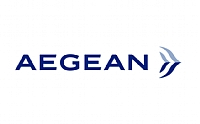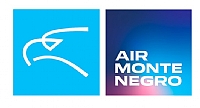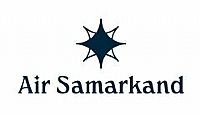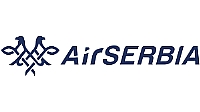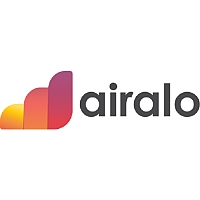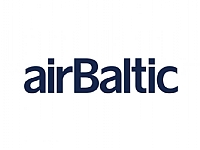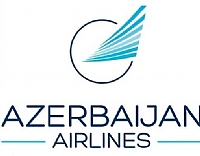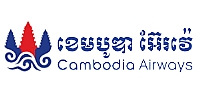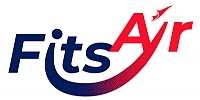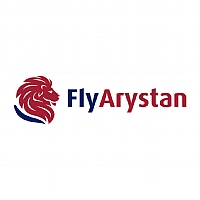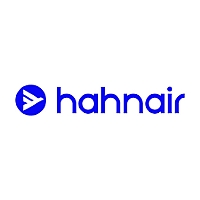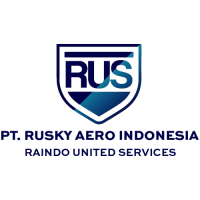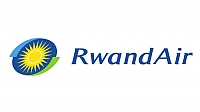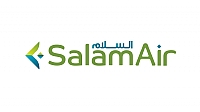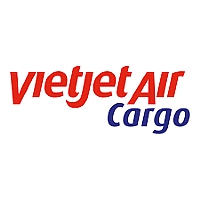Malaysia Airlines Berhad restructuring continues to show positive results

Malaysia Airlines Berhad is pleased to announce the latest quarterly update of its restructuring, which saw sustained progress amidst a backdrop of external macro-economic fluctuations.
Group Chief Executive Officer of Malaysia Airlines Berhad, Christoph Mueller said “We have seen a challenging quarter but I am pleased to see continued progress made in all key areas such as on-time performance and costs. Malaysia Airlines has been operating for six months now and although we have a long way to go and areas for improvement, we are making steady progress in the restructuring.”
“We are focused on building momentum with our restructuring in 2016. Diligent execution on efficiency and tighter cost controls has already produced results which have seen us emerging leaner and more focused. There is still plenty to be done but the group is working hard to ensure that Malaysia Airlines succeeds and prospers for the years to come,” added Mueller.
Leveraging alliance and strategic partnerships
Malaysia Airlines officially began its global aviation partnership agreement with Emirates Airlines (Emirates) in the quarter with both carriers placing its codes on the Kuala Lumpur-Dubai route, as well as other routes under the agreement. The codeshare is an integral part of the airline’s future network plan as it focuses on getting customers connected globally, opening up a host of new destinations for customers by providing unprecedented access to Emirates’ network. The first phase of the agreement will see 11 destinations introduced, including Rome, Paris, Madrid and Frankfurt, with the rest being added progressively over the next few months subject to regulatory approvals. Once complete, Malaysians will have access to over 30 destinations in Europe, Middle East, Canada, and Africa.
The codeshare is an important element towards Malaysia Airlines’ proposition of being the preferred way to fly to, from and around Malaysia as it seamlessly opens up new destinations to our customers whilst feeding new customers into Malaysia and ASEAN. Malaysia Airlines will also be looking to leverage other partnerships and collaborations more, such as the existing oneworld alliance, to provide our customers access to untapped markets whilst further encouraging passengers to experience Malaysia.
Malaysian flavour to customer-centric products
The quarter saw the introduction of new menus showcasing Malaysia’s diverse and unique flavours. Alongside the new menus, a personalised ‘dine-on-demand’ service, where guests are able to have meals at their convenience, was introduced for First class passengers in the quarter. The service will be rolled out to Business class over the next few months. Hot meals were also introduced for short haul economy passengers, which have already garnered very positive responses from customers. Moving forward, the airline will be taking the five star Malaysian experience further by collaborating with top- ranked hotels and culinary personalities.
The airline’s new customer proposition of bringing the Malaysian experience to customers will be introduced at all points of the travel experience. This starts at the lounges which now showcase Malaysian dishes together with a brand new ‘Laksa’ bar which reflects the airline’s aspiration to be the ambassador of Malaysia to the world.
Other product enhancements will be the new A330 lie-flat-bed business class seats which will commence operations at the end of March 2016 to Sydney. A cabin refresh programme will also be completed on all A330s along with the new seats by 31 August 2016.
Performance and product improvements
Revenue per available seat kilometre for the quarter improved 10% year-on-year on the back of the route optimisation exercise conducted earlier. Seat load factor is also showing improvements with over 350,000 passengers traveling with Malaysia Airlines over the Chinese New Year holiday.
Improving punctuality and on time performance (OTP) is a core goal for the operations team. Malaysia Airlines needs to win on customer service and this is being benchmarked against our competitors , who are operating at 85% OTP at the highest end and 57% OTP at the lowest. Numerous initiatives were put in place in the last quarter, which led to a marked improvement in on time performance. After a dip in December, due to adverse weather conditions and constraints in availability of aircraft, punctuality reached 85% in February 2016. On 17 February 2016, the airline hit a record 95% punctuality across all flights with 100% on domestic operations.
The quarter saw continued progress on revamping the experience for Malaysia Airlines’ customers. Over the next quarter, new initiatives will be introduced to improve service quality and to shorten waiting times for passengers. Other improvements include refreshed aesthetics in the lounges showcasing Malaysian creative talent, new Business Class seats on our A330s, and new on-board cuisine.
Consolidation at KLIA Main Terminal Building
To ensure convenience and improved connectivity for passengers, Malaysia Airlines is also planning a move to concentrate most of its operations in KL International Airport’s (KLIA) main terminal. The plan will mean quicker connections for ASEAN passengers between international and domestic flights. This will improve flight connection times, provide faster and more reliable baggage transfer and ultimately ensure better customer satisfaction. With a successful trial conducted earlier this year, the airline is working closely with Malaysia Airports Holdings Berhad to realise the consolidation.
Fleet optimisation
The partnership with Emirates will contribute to Malaysia Airlines’ fleet consolidation and has enabled the airline to retire the B777-200s completely. The consolidation will drive down complexity in maintenance, engineering and flight operations.
Malaysia Airlines has ordered four brand new Airbus A350-900s aircraft. The aircraft will deliver great performance and is able to operate non-stop from Kuala Lumpur to London and throughout Asia. Deliveries will start in October 2017 but major work has already been completed with the seats, layout and technical specification all now finalised. The manufacturing of major parts of the new aircraft has already commenced at Airbus plants globally. Beyond this, the airline is evaluating additional A350s in order to reach a critical fleet size, allowing standby aircraft for any scheduled maintenance and enabling future network expansion. Malaysia Airlines actively assesses new route opportunities on an on-going basis and is currently evaluating the possibility of serving unique and new destinations that would require new equipment.
The airlines’ A380s are due for scheduled maintenance at the beginning of the second quarter this year, which will mean an average of one A380 aircraft being out of commission for the remainder of 2016. In anticipation of this, the airline is exploring reinstating a former flagship aircraft to ensure minimal interruptions on the London route.
Cost savings
Managing costs is a key component in reaching the projections under the approved Malaysia Airlines’ Business Plan. A key performance indicator for the entire organization is now centered around cost management with a focus on managing to budget and improving procurement.
The quarter saw the successful renegotiation of contracts with a majority of operating lessors with revised lease rates that are significantly lower and on economically feasible terms. The revised lease rate, now at market rate and at levels consistent with Malaysia Airlines’ Business Plan, has enabled the airline to enter into Letters of Intent with lessors to take on the underlying aircraft.
The overall review and renegotiation of supply contracts with key vendors, crucial towards setting the airline on the right path to recovery and sustained profitability, also continued in the quarter.
Malaysia Airlines will also be investing in new ground service equipment that will improve on-time performances and turnaround times.
IT as an important enabler
The quarter saw the launch of a new software upgrade programme which includes new collaborative platforms to enable staff to work in a more connected manner. This is part of the planned over-haul of the entire technology framework and infrastructure to remove unnecessary complexity and improve seamlessness. This includes the transformation of our data centre into a pay per-use, secure and agile cloud facility which will improve time to market.
Further progress was also made in the quarter in transitioning the data centre to a cloud environment
for better mobility, collaboration, ease of use and security. IT security capabilities have been tightened to mitigate any advanced security threats.
Enhancing corporate governance
The new Corporate Approving Authority Policy (CAAP) has now been approved. The airline is further strengthening its internal governance with the hiring of a Head of Investigation and Head of Business Integrity department, responsible for ensuring better compliance and transparency whilst minimising fraud and illegal practices.
The Works Council, promoting dialogue between employees and management, moved into its next phase in the period under review, with active participation from staff who have nominated council representatives across all the divisions. The full formation of the council is expected to be operational by the second quarter of this year with the first Works Council expected to sit in April 2016.
Investing in a talent pipeline
People development and succession planning, an integral part for the organisation’s sustained success, remains a key focus in 2016. To this end, the quarter saw the introduction of the revamped Performance Management System, which will encourage productivity by providing clear targets as well as a clearer path for career progression. The system will enable us to spot skills gaps and escalate retraining programmes.
To address skills gaps, the airline will also be exploring joint ventures with established international organisations to provide training and specific skillsets. Whilst being beneficial for the airline, the venture is also very much in line with the Government’s Economic Transformation Programme.
The airline has been working hard in closing the skills gap via the Malaysia Airlines Academy which will be based in KLIA, providing a centre of aviation skills for Malaysia. The newly revamped academy will ensure future generations of leaders for the airline will be groomed entirely from within. To this end, Malaysia Airlines has successfully recruited 20 management trainees towards building a talent pipeline as well as growing the aviation skillsets in Malaysia. The trainees will be assigned and rotated across the various divisions in Malaysia Airlines to ensure exposure across all functions of the organisation and to inspire passion for the industry.
The quarter saw further strengthening of the leadership team with the announcement of a new Head of Revenue Management and Head of Engineering. The new team is an important strategy of having world class and diverse talent to reflect the company’s global business and operations.




















